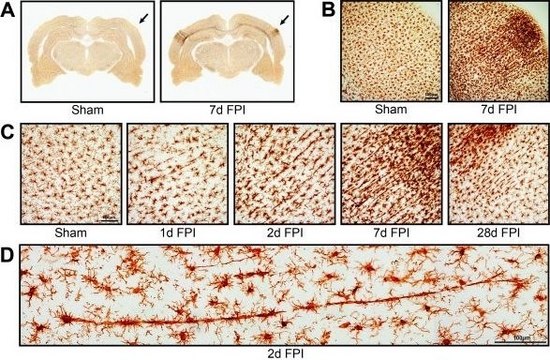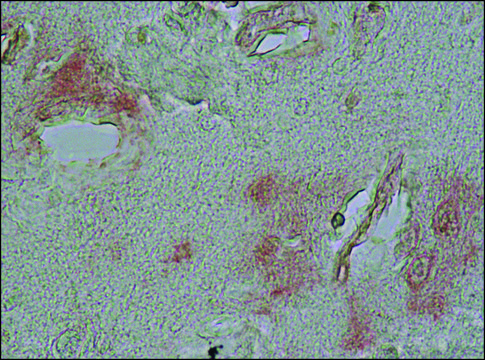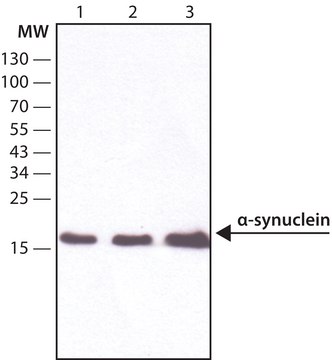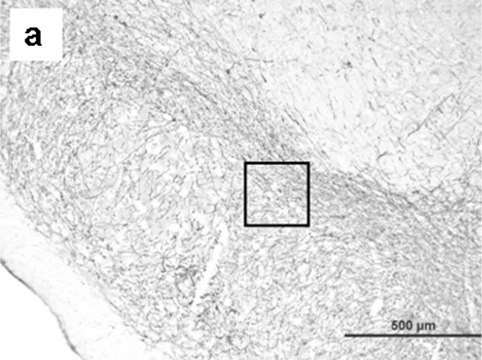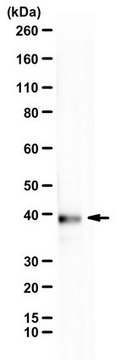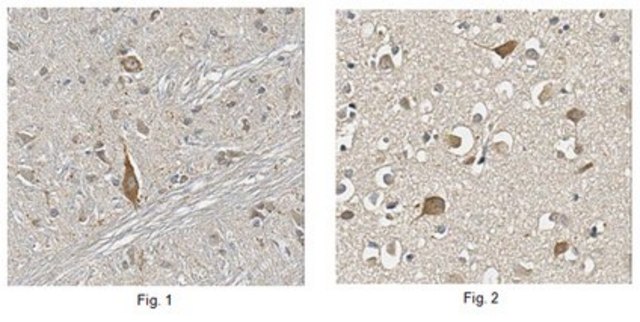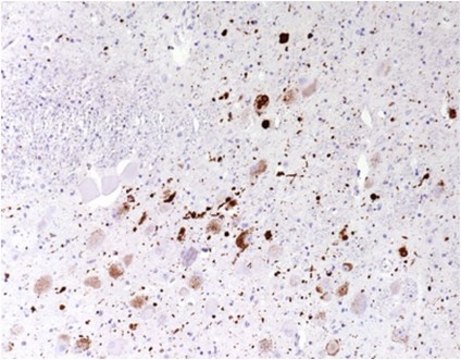ABN905
Anti-alpha-Synuclein
from rabbit, purified by affinity chromatography
Synonym(s):
Non-A beta component of AD amyloid, Non-A4 component of amyloid precursor, NACP
About This Item
Recommended Products
biological source
rabbit
antibody form
affinity isolated antibody
antibody product type
primary antibodies
clone
polyclonal
purified by
affinity chromatography
species reactivity
human, mouse, rat
packaging
antibody small pack of 25 μg
technique(s)
immunohistochemistry: suitable (paraffin)
western blot: suitable
NCBI accession no.
UniProt accession no.
target post-translational modification
unmodified
Gene Information
human ... SNCA(6622)
General description
Specificity
Immunogen
Application
Immunohistochemistry (Paraffin) Analysis: A 1:2,000-3,000 dilution from a representative lot detected alpha-Synuclein in human cerebral cortex and rat cerebellum tissue sections.
Quality
Western Blotting Analysis: A 1:500 dilution of this antibody detected alpha-Synuclein in mouse brain tissue lysate.
Target description
Other Notes
Not finding the right product?
Try our Product Selector Tool.
Regulatory Information
Certificates of Analysis (COA)
Search for Certificates of Analysis (COA) by entering the products Lot/Batch Number. Lot and Batch Numbers can be found on a product’s label following the words ‘Lot’ or ‘Batch’.
Already Own This Product?
Find documentation for the products that you have recently purchased in the Document Library.
Our team of scientists has experience in all areas of research including Life Science, Material Science, Chemical Synthesis, Chromatography, Analytical and many others.
Contact Technical Service
